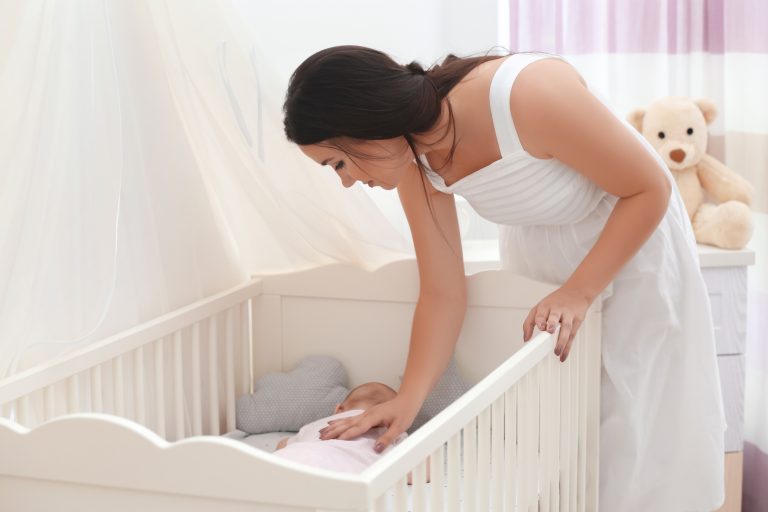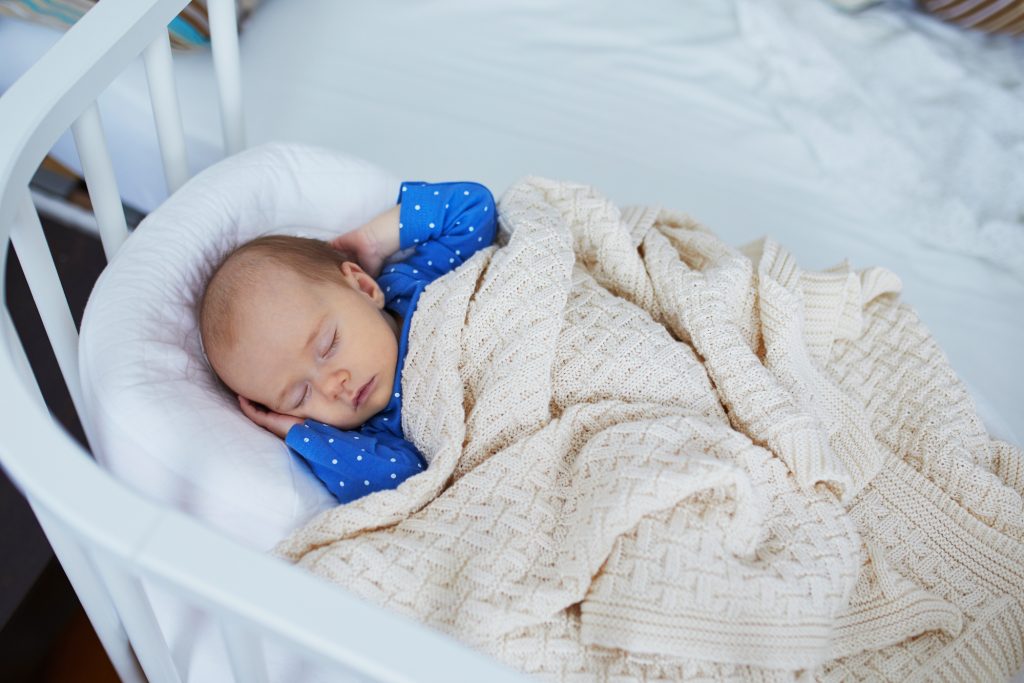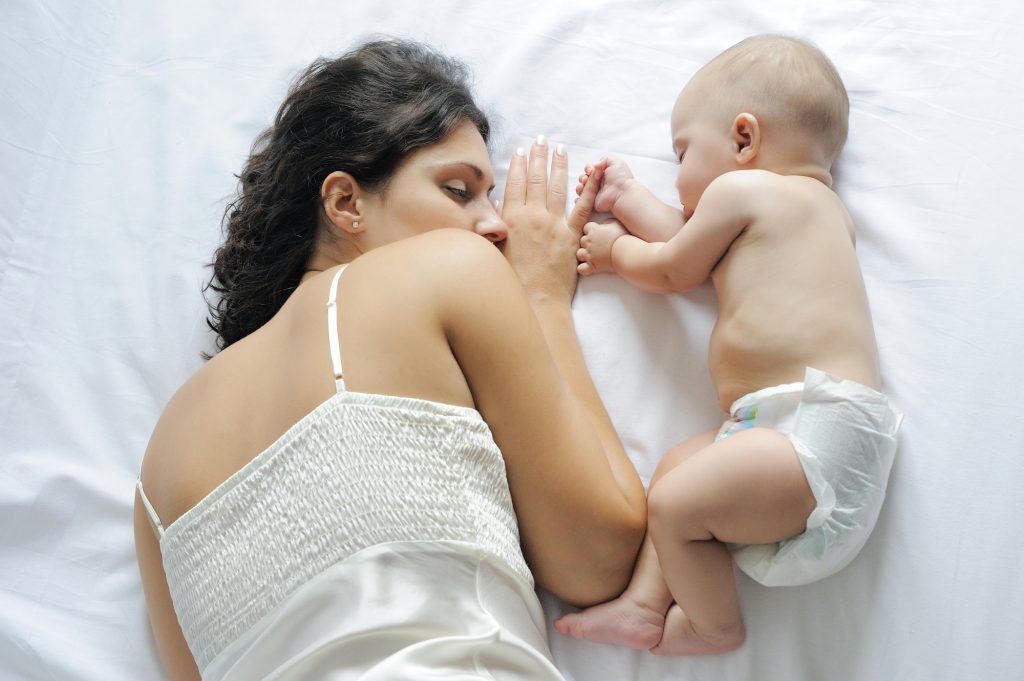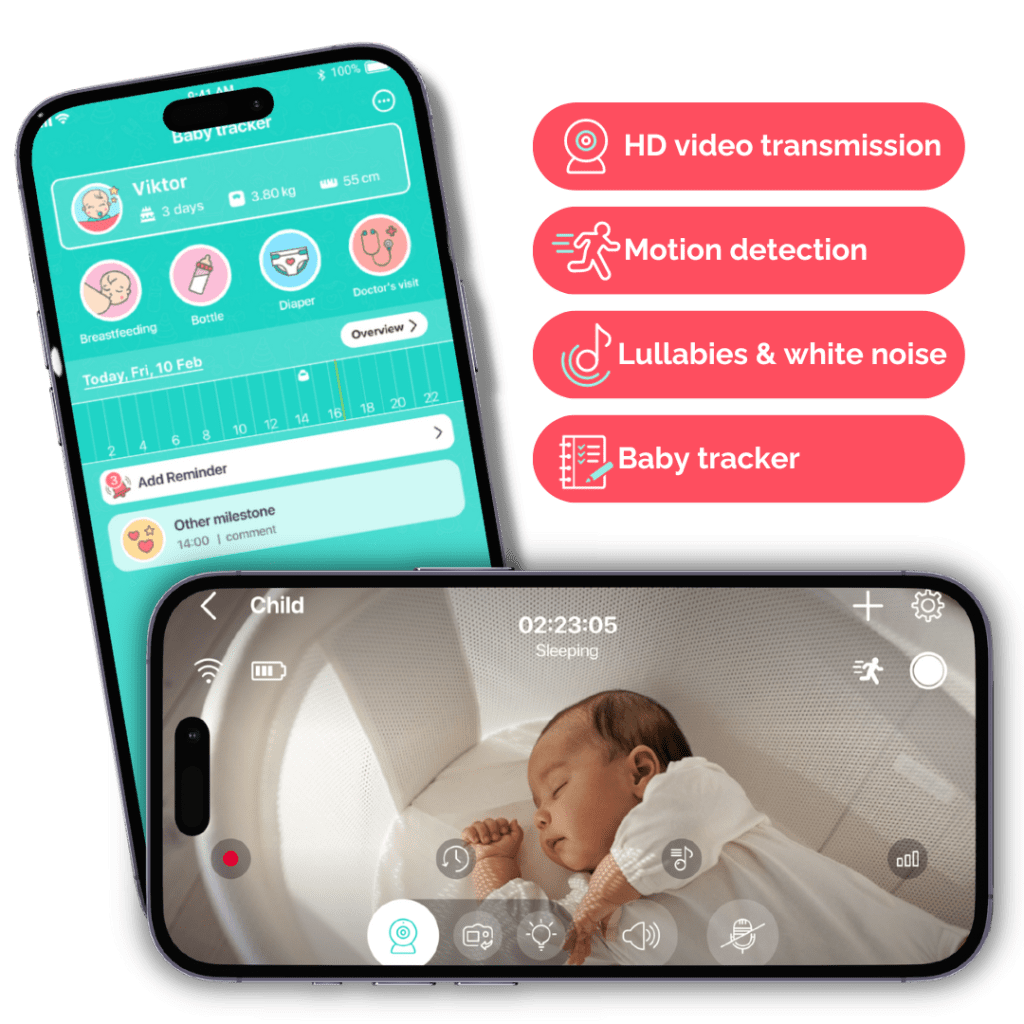
How Long Can Baby Sleep in Bassinet?
- Created:
25. 1. 2022 - Updated:
29. 1. 2024
A bassinet is a safe, comfortable place for your baby to sleep. The best thing about it is that it’s nearby and you can see your baby at any time during the night. You may be wondering how long your baby should be sleeping in her bassinet.
Parents are often confused about how long their newborns should sleep in their bassinet. Some experts say that babies should stay in the bassinet until they reach six months old, while others say to move them to a crib after three months. But what does the research say?
There is no exact rule for how long your baby should be sleeping in her bassinet. A newborn baby can sleep in her bassinet for about six months or until she can crawl. Keep in mind that the longer your baby sleeps in her bassinet, the more comfortable it will be for her.

How Long Can the Baby Sleep in a Bassinet?
A lot of parents still believe that their newborns should sleep in a bassinet until they reach six months old. But, research says that they should move to a crib after three months.
The American Academy of Pediatrics recommends that babies sleep on their backs in a crib before the age of six months. At this point, you can move your baby into a bassinet or crib without fear of suffocation.
Let’s check the two main reasons that help you to understand how long you can use it.
1. When Baby Start Rolling Over:
When the baby starts to roll over on the or in the bassinet, it is a clear sign that your baby is ready for the transition from bassinet to the crib so you should immediately move them into the crib as soon as possible.
But if you still want to use the bassinet more longer then you should put the baby back to sleep in a safe position to avoid any accidents.
You can also do some activities with your child during this transition phase like playing with toys or singing songs so that the transition will be easier for them.
2. Is Your Baby Is Comfortable in It:
Always make sure your baby feels comfortable in the bassinet, make sure they don’t overgrow it. Many parents forget that their baby needs a good amount of space in a bassinet to be comfortable.
A good rule of thumb is that your baby should always feel like they are sleeping on a bed. If your bassinet is too small, your baby may get hot when lying down and may start moving around more than necessary, which can cause them to become uncomfortable.
If you have babies under the age of 6-8 months, make sure you choose a bassinet with enough space for them to grow into it. Here are some of the best bassinets for big babies, in case you like to buy it.
Make sure the bassinet is sturdy and well-made to avoid any accidents or falls. Your baby should not be able to tip over or fall out while they are sleeping in it.
Make sure the sides are not too hard so that they do not hurt their heads while falling asleep or waking up during the night.
Risks Associated With Newborn Sleeping in a Bassinet?
Newborns can sleep in the bassinet for a few months, but the risks of using it for extended periods are significant. The American Academy of Pediatrics (AAP) recommends that parents move their baby to a crib when they reach three months old. In fact, if you aren’t sure how long your baby should be sleeping in the bassinet, you may want to consult with your pediatrician.
There are two main risks associated with newborns sleeping in a bassinet: Sudden infant death syndrome (SIDS) and suffocation. While these incidents have been shown to happen less often when babies sleep in a crib, they do still occur.
A. Risk of Suffocation:
Your baby’s risk of suffocation is the number one concern when it comes to your baby sleeping in a bassinet.
Generally, the American Academy of Pediatrics recommends that babies sleep in their parents’ room until they reach six months old. This is because there is a risk of suffocation during those first few months.
But you don’t have to worry too much about this risk if you follow certain guidelines. For example, you can use the mattress pad that came with the bassinet to cover up your baby and make sure she doesn’t have access to any loose bedding or pillows. You should also make sure that your bassinet has enough ventilation and that it’s placed on a firm surface or mattress.
If these precautions are taken, then you shouldn’t have too many worries about your little one’s safety while sleeping in her bassinet.
B. Risk of Airway Obstruction:
A baby’s airway can become obstructed if they sleep in a bassinet for too long. This is because the weight of their head on the mattress or in the crib may cause them to develop an obstruction around the throat, making it difficult for them to breathe.
To prevent this, experts suggest that babies should be switched from their bassinet to a crib when they reach six months old. The American Academy of Pediatrics (AAP) also suggests that parents should change their baby’s position every few hours, which will let a baby’s airway stay open and prevent obstructions.
Cribs are also safer than bassinets because they have rails that keep your baby from rolling out. But if you want your baby to sleep near you rather than in his own room, then the AAP says it’s ok for parents to go back and forth between bassinets and cribs until their baby reaches six months old.

When Should the Baby Be Moved Out of the Bassinet?
There are many different theories about how long a baby should stay in a bassinet. Some say that no place is safe from bed-sharing, and so it’s best to keep them in the bassinet until they reach six months old. Others argue that because most infants are still sleeping with their parents for the first few months of life, it’s safer for them to sleep in the same room as mom and dad.
If you’re not sure when to move your baby out of the bassinet, follow these guidelines:
- Babies should be able to sit up unaided before being moved.
- Your baby should be able to roll over while on her back without belly pain or difficulty breathing.
- She should be able to lift her head off of the mattress unaided, but she shouldn’t be able to pull herself up on her own yet.
- Your baby will most likely take two naps a day at this age: one before lunch and one after dinner.
- When your baby wakes up at night, she may want five minutes of tummy time before jumping back into bed. If she wants more than
Now it’s your turn to let us know your valuable feedback in the comment section and don’t forget to share the guide because sharing is caring.
Final Tip: Enhancing Safety with Annie Baby Monitor
Making sure your baby is safe is very important.
Although a bassinet is a comfy and secure spot to sleep, adding the Annie Baby Monitor to your toolkit will take your baby’s safety to the next level.
The Annie Baby Monitor is way more than just an audio and video monitor. It tracks your baby’s movements in real-time, detects motion and sound, plays lullabies and white noise, and even has a baby tracker.
Your baby’s safety and well-being are priority number one, and with the Annie Baby Monitor, you can get the extra peace of mind you need.

So, don’t think twice about making the Annie Baby Monitor a must-have tool for parenting when it comes to keeping your baby safe and sound.
FAQ: Baby Sleep in Bassinet
Yes, it’s okay for a baby to sleep in a bassinet, as long as the bassinet meets safety standards and is placed in a safe sleeping environment.
Yes, newborns can take daytime naps in a bassinet or crib to ensure a safe and comfortable sleep environment.
Both cribs and bassinets can be safe choices for a baby to sleep in, but bassinets are often preferred for newborns because they’re smaller and more portable, while cribs are suitable for older babies and provide long-term use.
Newborns often sleep in bassinets because they are smaller and cozier than cribs, which can provide a more secure and comforting sleeping environment for a newborn.






